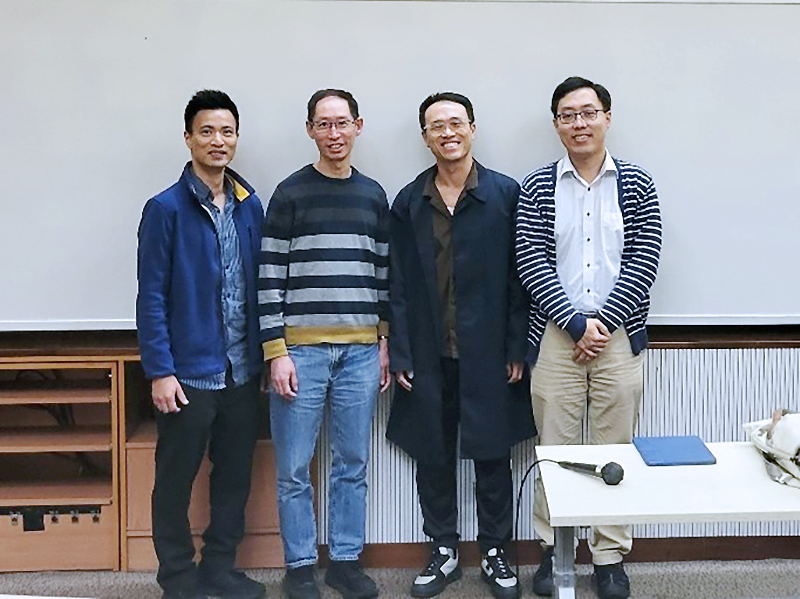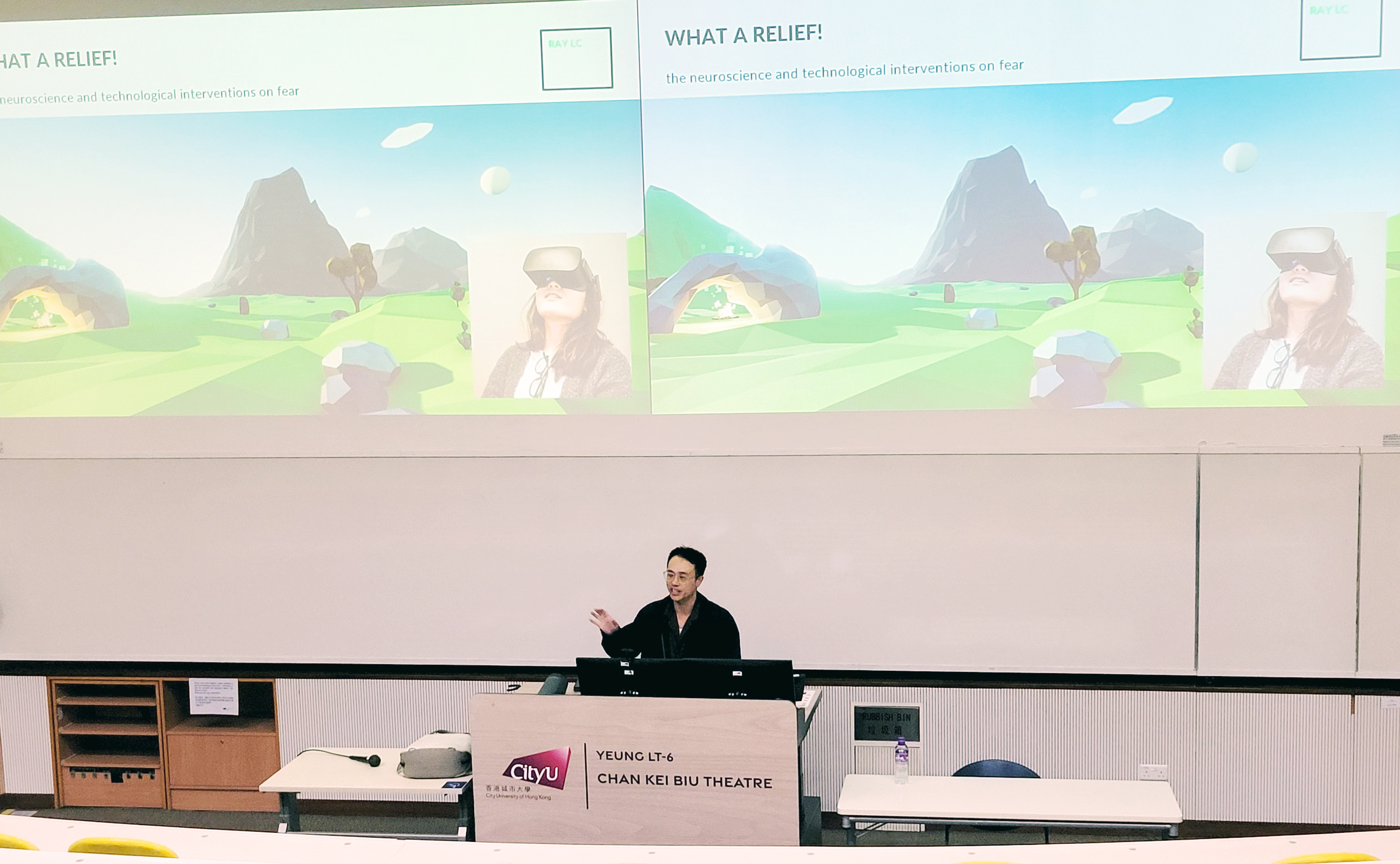

On the 29th of February 2024, the Department of Neuroscience invited Professor RAY LC, an Assistant Professor from the School of Creative Media, CityU, to present a talk entitled “What a Relief!": the Neuroscience and Technological Interventions on Fear”. Prof. RAY received his PhD in Neuroscience from UCLA and an MFA from Parsons School of Design. He then joined CityU in 2021 and founded the Studio for Narrative Spaces. Prof. RAY takes perspective from his previous neuroscience background into his current interdisciplinary research in human-computer interaction (HCI) and art-technology interventions.
Prof. Ray first introduced the concept of fear and how visceral fear response is manifested once it is learnt. He then emphasised the relationship between fear and dopamine, a neurotransmitter that is traditionally well-known to serve roles in motivation and reward. Prof. RAY’s in-vivo optogenetic work revealed that activating dopaminergic neurons — which project from the ventral tegmental area to the nucleus accumbens — can induce fear extinction in rats subjected to fear conditioning. The circuits involved in fear extinction was shown to be modulated by differential MAPK phosphorylation in the medial prefrontal cortex and amygdala. Based on this work, which suggests that fear extinction could participate in such reward-related pathways, he then explored the possibility of utilising technological interventions to mitigate fear and anxiety in a reward-based manner. Prof. RAY then focused on using virtual reality (VR) and machine learning to aid individuals affected with psychological-based disorders such as stuttering and social anxiety.
His current research at CityU examines the complex relationship between humans and machines, particularly how our behaviours are shaped by immersive spaces with technology such as VR and artificial intelligence. In his recent work, Prof. RAY’s lab has shown that avatar users in VR platforms interact with mirrors in a way which could enhance self-embodiment through immersion and thus promote bolder behaviours in an anonymous way. Conversely, users who interact with mirrors showed lower conversational performance despite increased self confidence. Another latest finding from their lab showed the synergistic interaction between dancers and drones through an artistic performance. They showed the perceived movement patterns of dancers reflected the drone movements in an improvisational manner, with a preferred connection in a single-drone scenario compared to a two-drone situation. Prof. RAY’s research continues to reveal the complex interplay of HCI, which affects narrative storytelling.